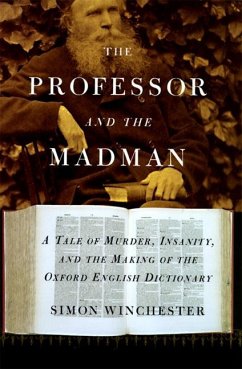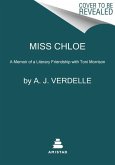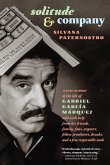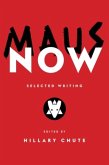Mysterious (mistîe · ries), a. [f. L. mystérium Mysteryi + ous. Cf. F. mystérieux.] 1. Full of or fraught with mystery; wrapt in mystery; hidden from human knowledge or understanding; impossible or difficult to explain, solve, or discover; of obscure origin, nature, or purpose. It is known as one of the greatest literary achievements in the history of English letters. The creation of the Oxford English Dictionary began in 1857, took seventy years to complete, drew from tens of thousands of brilliant minds, and organized the sprawling language into 414,825 precise definitions. But hidden within the rituals of its creation is a fascinating and mysterious story--a story of two remarkable men whose strange twenty-year relationship lies at the core of this historic undertaking. Professor James Murray, an astonishingly learned former schoolmaster and bank clerk, was the distinguished editor of the OED project. Dr. William Chester Minor, an American surgeon from New Haven, Connecticut, who had served in the Civil War, was one of thousands of contributors who submitted illustrative quotations of words to be used in the dictionary. But Minor was no ordinary contributor. He was remarkably prolific, sending thousands of neat, handwritten quotations from his home in the small village of Crowthorne, fifty miles from Oxford. On numerous occasions Murray invited Minor to visit Oxford and celebrate his work, but Murray's offer was regularly--and mysteriously--refused. Thus the two men, for two decades, maintained a close relationship only through correspondence. Finally, in 1896, after Minor had sent nearly ten thousand definitions to the dictionary but had still never traveled from his home, a puzzled Murray set out to visit him. It was then that Murray finally learned the truth about Minor--that, in addition to being a masterful wordsmith, Minor was also a murderer, clinically insane--and locked up in Broadmoor, England's harshest asylum for criminal lunatics. The Professor and the Madman is an extraordinary tale of madness and genius, and the incredible obsessions of two men at the heart of the Oxford English Dictionary and literary history. With riveting insight and detail, Simon Winchester crafts a fascinating glimpse into one man's tortured mind and his contribution to another man's magnificent dictionary.
"A fascinating, spicy, learned tale." - Richard Bernstein, New York Times
"A brisk, gracefully executed work of popular intellectual history, a model of its kind." - Washington Post
"An extraordinary tale, and Simon Winchester could not have told it better. . . . [He] has written a splendid book." - The Economist
"Elegant and scrupulous." - David Walton, New York Times Book Review
"I found The Professor and the Madman both enthralling and moving, in its brilliant reconstruction of a most improbable event: the major contributions made to the great Oxford English Dictionary by a deeply delusional, incarcerated 'madman,' and the development of a true friendship between him and the editor of the OED. One sees here the redemptive potential of work and love in even the most deeply, 'hopelessly,' psychotic." - Oliver Sacks, M.D.
"There is much truth to be drawn [from The Professor and the Madman] about Victorian pride, the relation between language and the world, and the fine line between sanity and madness." - Wall Street Journal
"As enthralling as a good story can be and as informative as any history aspires to be." - Linda Bridges, National Review
"Superb." - William Safire, New York Times Magazine
"A marvelous, true story that few readers will have heard about." - Booklist
"It's a story for readers who know the joy of words and can appreciate side trips through the history of dictionaries and marvel at the idea that when Shakespeare wrote, there we no dictionaries to consult.... Winchester, a British Journalist who's written 12 other books, combines a reporter's eye for detail with a historian's sense of scale. His writing is droll and eloquent" - Bob Minzesheimer, USA Today
"Madness, violence, arcane obsessions, weird learning, ghastly comedy, all set out in an atmosphere of po-aced, high neo-Gothic. The geographical span is wide, from Dickensian London to Florida's Pensacola Bay, from the beaches at Trincomalee to the Civil War battlefields of the United States. . . . It is a wonderful story." - John Banville, Literary Review
"Mr. Winchester deftly weaves...a narrative full of suspense, pathos and humor.... In this elegant book the writer has created a vivid parable, in the spirit of Nabokov and Borges. There is much truth to be drawn from it, about Victorian pride, the relation between language and the world, and the fine line between sanity and madness." - Daniel Mark Epstein, Wall Street Journal
"Remarkably readable, this chronicle of lexicography roams from the great dictionary itself to hidden nooks in the human psyche that sometimes house the motives for murder, the sources for sanity, and the blueprint for creativity." - Kirkus Reviews (starred)
"Absolutely riveting." - Will Self, The Times (London)
"Winchester has written a powerful account of the shifting foundations on which meaning is built, and the impoverishment of a language that could not describe or give peace to one of its makers." - Lithe Sebesta, New York Post
"Winchester's history of the OED is brisk and entertaining" - Mark Rozzo, Washington Post Book World
"The Oxford English Dictionary used 1,827,306 quotations to help define its 414,825 words. Tens of thousands of those used in the first edition came from the erudite, moneyed American Civil War veteran Dr. W.C. Minor-all from a cell at Broadmoor Criminal Lunatic Asylum....includes a well-researched mini-history of the OED." - Publishers Weekly
"A brisk, gracefully executed work of popular intellectual history, a model of its kind." - Washington Post
"An extraordinary tale, and Simon Winchester could not have told it better. . . . [He] has written a splendid book." - The Economist
"Elegant and scrupulous." - David Walton, New York Times Book Review
"I found The Professor and the Madman both enthralling and moving, in its brilliant reconstruction of a most improbable event: the major contributions made to the great Oxford English Dictionary by a deeply delusional, incarcerated 'madman,' and the development of a true friendship between him and the editor of the OED. One sees here the redemptive potential of work and love in even the most deeply, 'hopelessly,' psychotic." - Oliver Sacks, M.D.
"There is much truth to be drawn [from The Professor and the Madman] about Victorian pride, the relation between language and the world, and the fine line between sanity and madness." - Wall Street Journal
"As enthralling as a good story can be and as informative as any history aspires to be." - Linda Bridges, National Review
"Superb." - William Safire, New York Times Magazine
"A marvelous, true story that few readers will have heard about." - Booklist
"It's a story for readers who know the joy of words and can appreciate side trips through the history of dictionaries and marvel at the idea that when Shakespeare wrote, there we no dictionaries to consult.... Winchester, a British Journalist who's written 12 other books, combines a reporter's eye for detail with a historian's sense of scale. His writing is droll and eloquent" - Bob Minzesheimer, USA Today
"Madness, violence, arcane obsessions, weird learning, ghastly comedy, all set out in an atmosphere of po-aced, high neo-Gothic. The geographical span is wide, from Dickensian London to Florida's Pensacola Bay, from the beaches at Trincomalee to the Civil War battlefields of the United States. . . . It is a wonderful story." - John Banville, Literary Review
"Mr. Winchester deftly weaves...a narrative full of suspense, pathos and humor.... In this elegant book the writer has created a vivid parable, in the spirit of Nabokov and Borges. There is much truth to be drawn from it, about Victorian pride, the relation between language and the world, and the fine line between sanity and madness." - Daniel Mark Epstein, Wall Street Journal
"Remarkably readable, this chronicle of lexicography roams from the great dictionary itself to hidden nooks in the human psyche that sometimes house the motives for murder, the sources for sanity, and the blueprint for creativity." - Kirkus Reviews (starred)
"Absolutely riveting." - Will Self, The Times (London)
"Winchester has written a powerful account of the shifting foundations on which meaning is built, and the impoverishment of a language that could not describe or give peace to one of its makers." - Lithe Sebesta, New York Post
"Winchester's history of the OED is brisk and entertaining" - Mark Rozzo, Washington Post Book World
"The Oxford English Dictionary used 1,827,306 quotations to help define its 414,825 words. Tens of thousands of those used in the first edition came from the erudite, moneyed American Civil War veteran Dr. W.C. Minor-all from a cell at Broadmoor Criminal Lunatic Asylum....includes a well-researched mini-history of the OED." - Publishers Weekly








